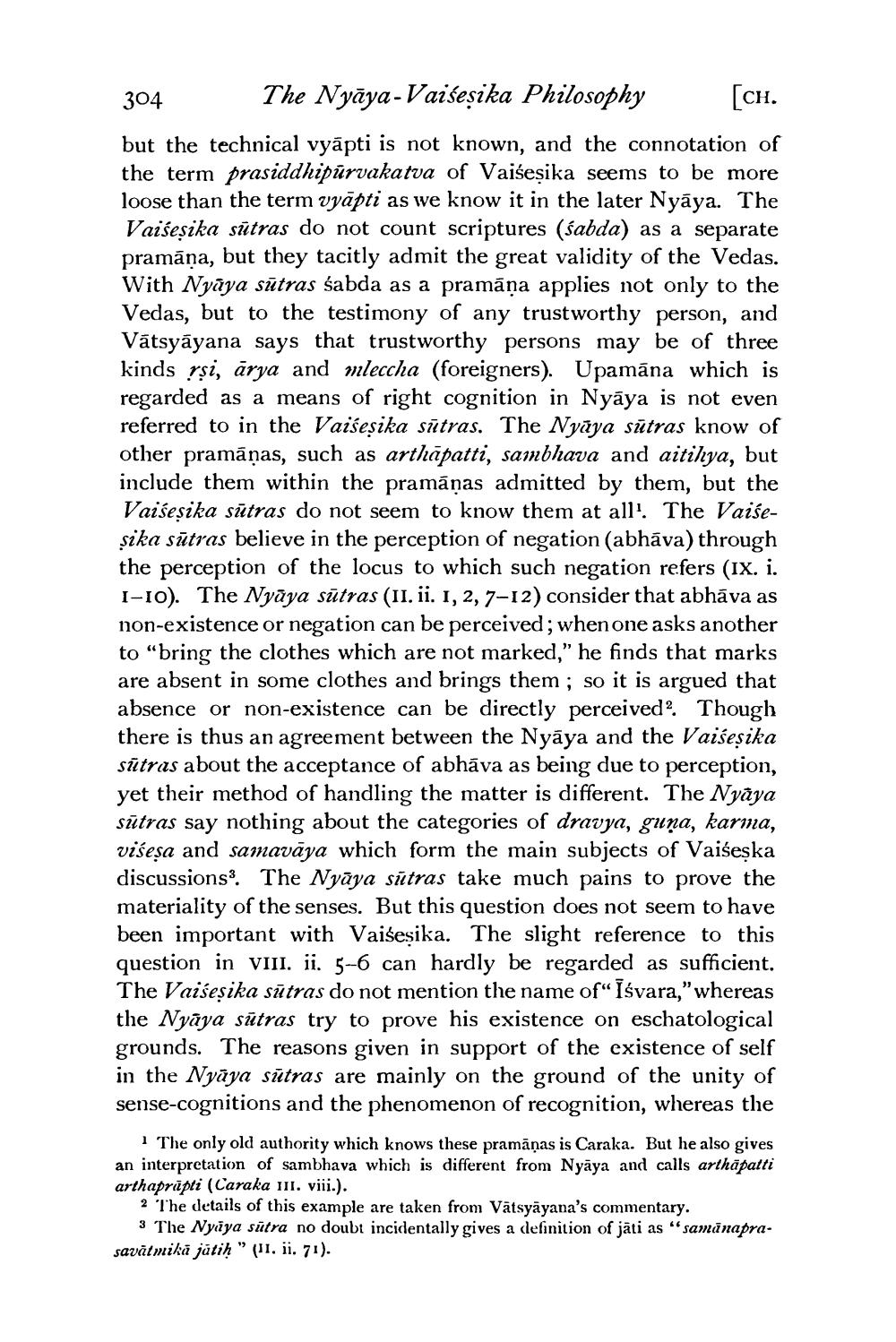________________
304
The Nyaya-Vaiseṣika Philosophy
[CH.
but the technical vyāpti is not known, and the connotation of the term prasiddhipurvakatva of Vaiseṣika seems to be more loose than the term vyapti as we know it in the later Nyaya. The Vaiseṣika sutras do not count scriptures (sabda) as a separate pramāṇa, but they tacitly admit the great validity of the Vedas. With Nyaya sutras sabda as a pramāņa applies not only to the Vedas, but to the testimony of any trustworthy person, and Vatsyayana says that trustworthy persons may be of three kinds rși, ārya and mleccha (foreigners). Upamana which is regarded as a means of right cognition in Nyaya is not even referred to in the Vaiseṣika sutras. The Nyaya sutras know of other pramāņas, such as arthapatti, sambhava and aitihya, but include them within the pramaņas admitted by them, but the Vaiseṣika sutras do not seem to know them at all. The Vaiseşika sutras believe in the perception of negation (abhāva) through the perception of the locus to which such negation refers (IX. i. 1-10). The Nyaya sūtras (II. ii. 1, 2, 7-12) consider that abhāva as non-existence or negation can be perceived; when one asks another to "bring the clothes which are not marked," he finds that marks are absent in some clothes and brings them; so it is argued that absence or non-existence can be directly perceived. Though there is thus an agreement between the Nyaya and the Vaiseṣika sūtras about the acceptance of abhāva as being due to perception, yet their method of handling the matter is different. The Nyaya sutras say nothing about the categories of dravya, guna, karma, viseṣa and samavaya which form the main subjects of Vaiseska discussions. The Nyaya sutras take much pains to prove the materiality of the senses. But this question does not seem to have been important with Vaiseṣika. The slight reference to this question in VIII. ii. 5-6 can hardly be regarded as sufficient. The Vaiseṣika sutras do not mention the name of" Isvara," whereas the Nyaya sutras try to prove his existence on eschatological grounds. The reasons given in support of the existence of self in the Nyaya sutras are mainly on the ground of the unity of sense-cognitions and the phenomenon of recognition, whereas the
1 The only old authority which knows these pramāņas is Caraka. But he also gives an interpretation of sambhava which is different from Nyaya and calls arthapatti arthaprapti (Caraka 111. viii.).
2 The details of this example are taken from Vätsyāyana's commentary.
3 The Nyaya sutra no doubt incidentally gives a definition of jäti as "samānaprasavātmikā jātiḥ" (II. ii. 71).




